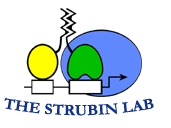| RESEARCH INTEREST |
Regulation of Gene Expression in Eukaryotes The regulation of gene expression is a fundamental aspect of most biological processes. In both prokaryotes and eukaryotes, gene expression is regulated primarily at the level of transcription. Our past and ongoing work aims at using the yeast Saccharomyces cerevisiae as a model system to explore the molecular mechanisms whereby genes are transcribed in a controlled fashion in eukaryotic cells. We are particularly interested in understanding how the basal transcription machinery, a large complex that contains many proteins in addition to the RNA polymerase, assembles at the promoter of genes and how this event is regulated. More recently, we became interested in studying the dynamics and epigenetic modifications of nucleosomes, the structural unit of chromatin, that are associated with transcriptional activity. The HBx protein of hepatitis B virus Chronic infection by hepatitis B virus (HBV) affects more than 350 million people worldwide and is leading cause of hepatocellular carcinoma, one of the most common cancers in humans. HBV encodes a small protein, known as HBx, which is essential for viral infection and has been implicated in HBV-associated liver cancer. The basis for HBx function in either process remains elusive and is the focus of our studies. We obtained strong evidence that HBx promotes viral gene expression by an unusual mechanism that affects only extrachromosomal DNA templates and that requires HBx to function as a substrate receptor for a cellular E3 ubiquitin ligase complex. We now aim to identify the substrate(s) recruited by HBx to the E3 ligase and explore the mechanisms whereby its ubiquitination promotes viral gene expression. Because of its uncommon property and key role in viral transcription, HBx represents an attractive target for new antiviral therapies. |
| Back to: |
